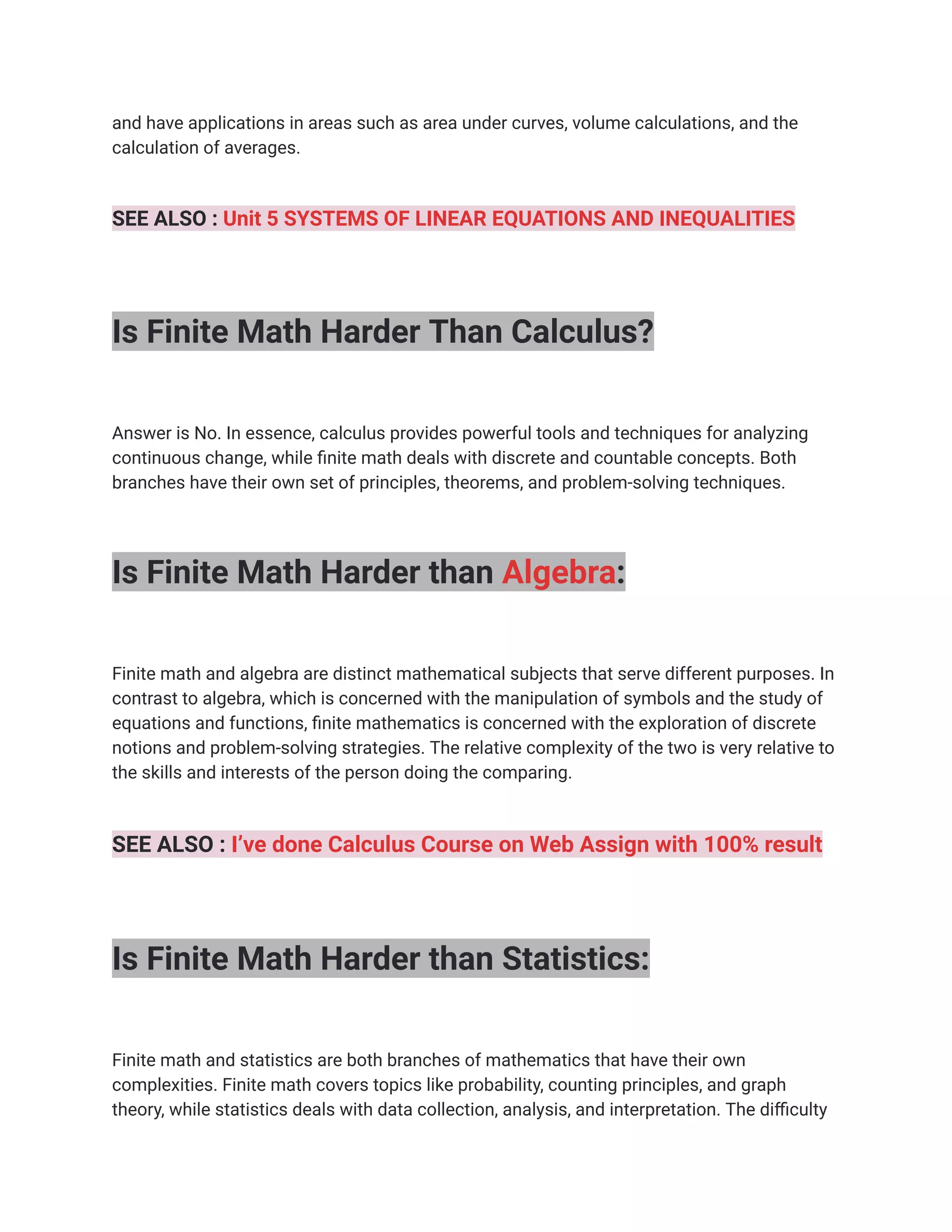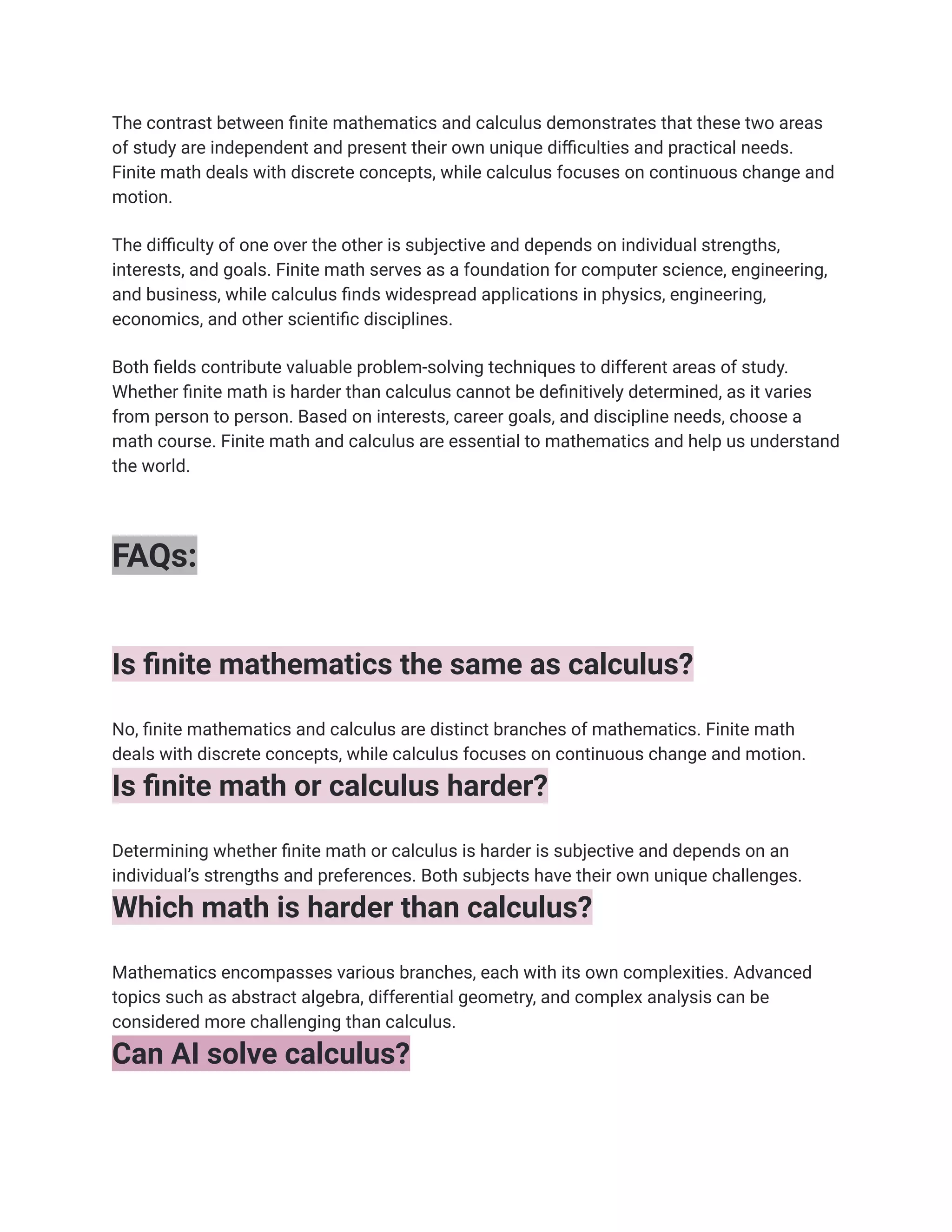The document compares finite math and calculus, concluding that finite math is not harder than calculus, as they address different mathematical concepts—finite math deals with discrete ideas, while calculus focuses on continuous change. Both subjects have unique challenges, and the difficulty of each is subjective, depending on individual strengths and goals. Finite math serves as a foundation for fields like computer science and business, whereas calculus is critical in various scientific applications such as physics and engineering.






